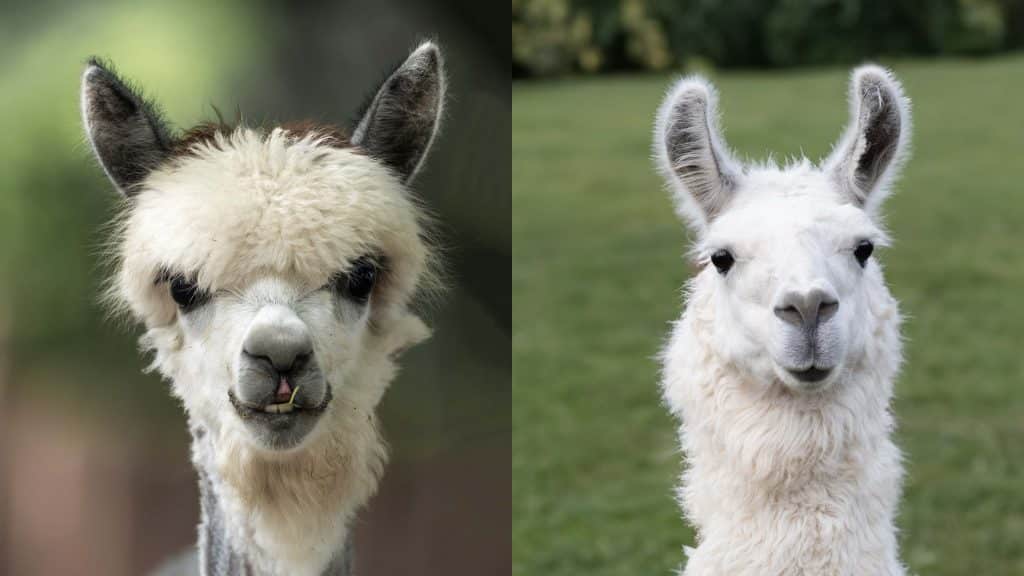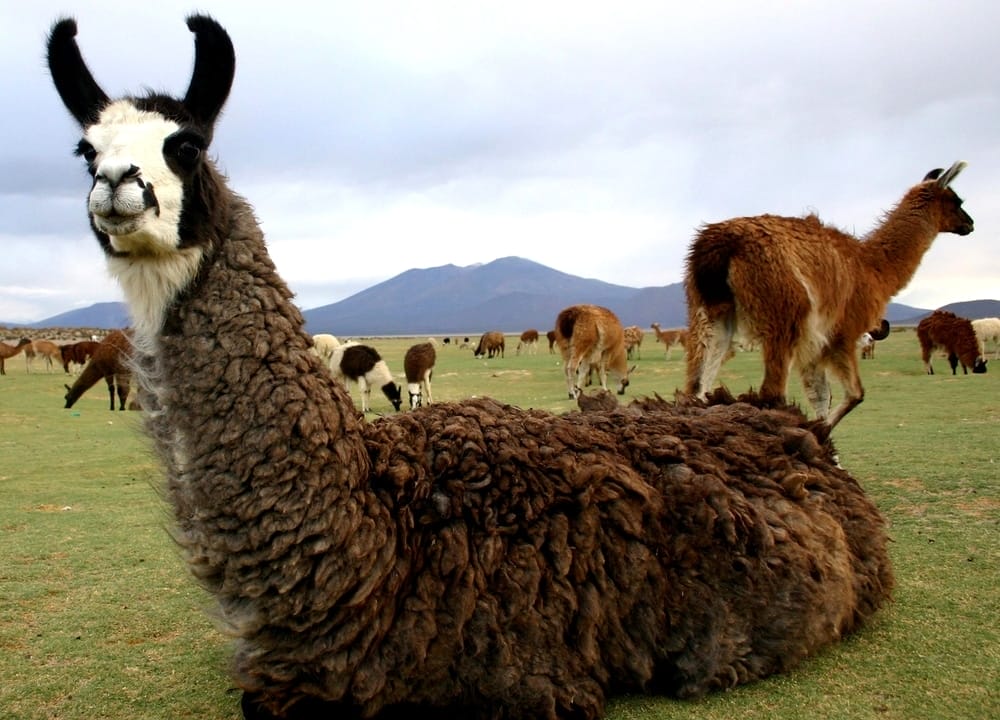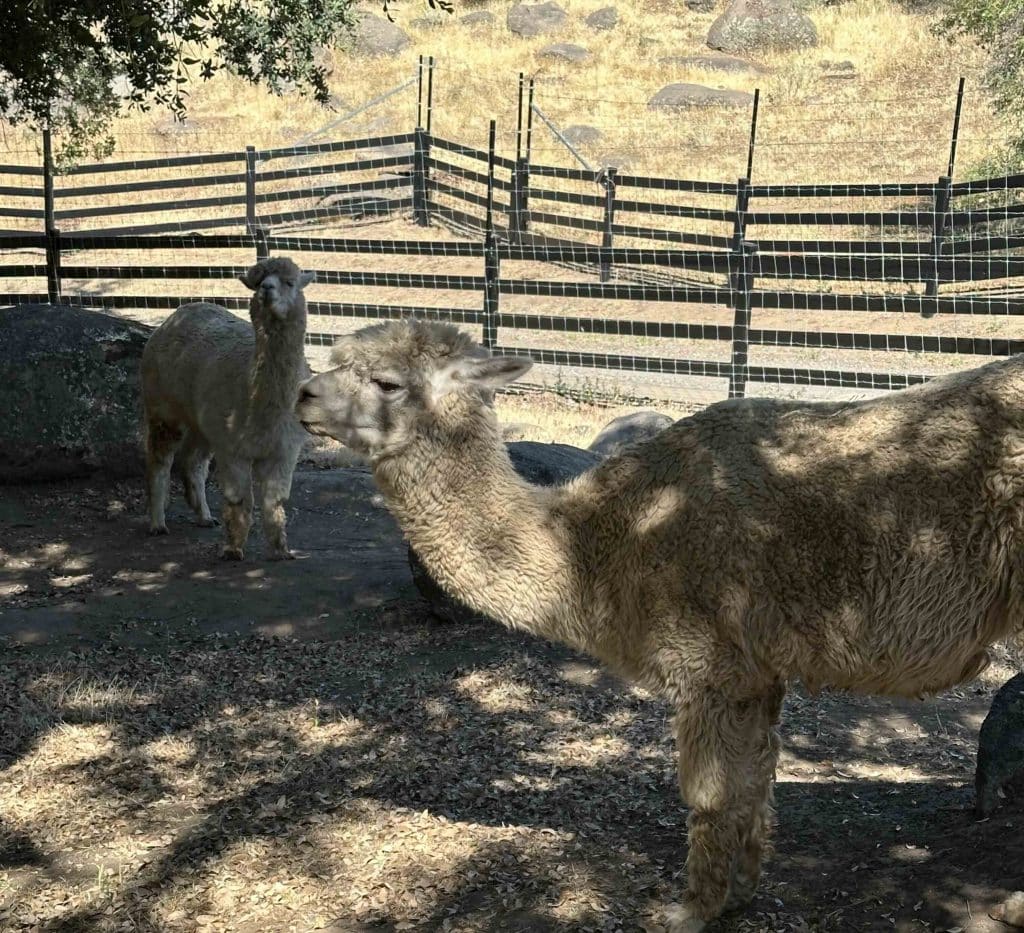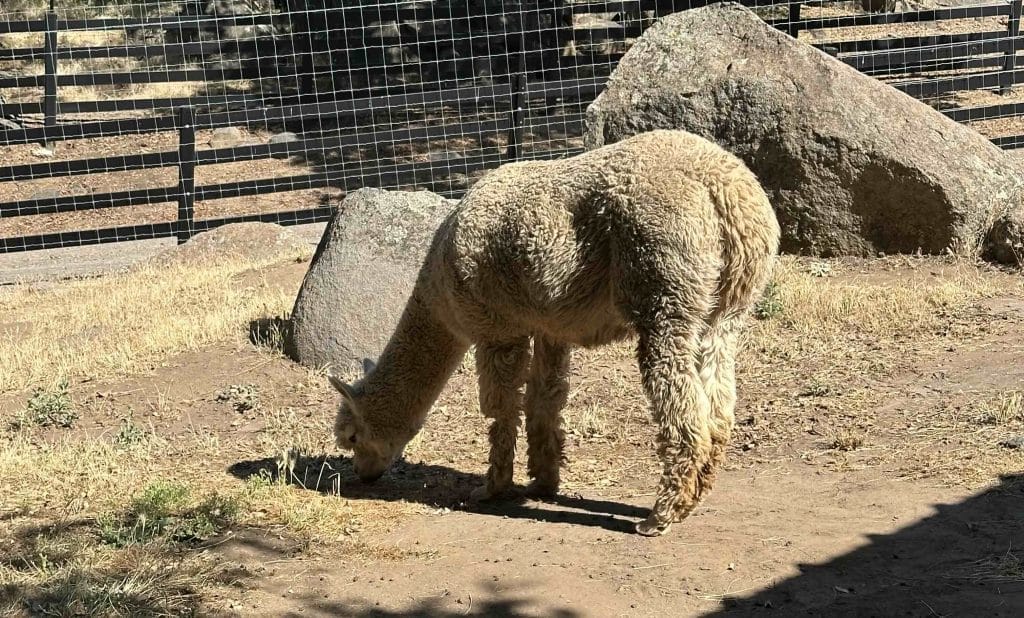

Animals have a magical way of drawing us in. Whether it’s the wide-eyed curiosity of a rescued tiger or the gentle hum of an alpaca, they remind us of the beauty of connection, compassion, and coexistence. At Lions Tigers & Bears, we’ve always welcomed animals in need—big or small, fierce or fluffy. And now, we’re thrilled to introduce four of our newest residents: a herd of charming, curious, and very fluffy alpacas.
But wait... are they alpacas or llamas? Aren’t they the same animal?
Not quite. While alpacas and llamas are both part of the camelid family (a group of hoofed mammals native to South America), they have some pretty major differences in appearance, behavior, and roles. At a sanctuary like ours, understanding those differences is essential to providing the specialized care these animals deserve.
Let’s break it down.
llamas and alpacas are like distant cousins who grew up on the same continent but took very different career paths. They’ve both been domesticated for thousands of years, but humans bred them for a variety of reasons.
Standing just under 3 feet tall at the shoulder and weighing 100 to 175 pounds, alpacas are the more petite of the two. They’re fluffy, quiet, and gentle, bred primarily for their incredibly soft alpaca fiber, which is warmer than wool and hypoallergenic. If you’ve ever cuddled an alpaca scarf, you know the magic.
Alpacas are herd animals, which means they feel safest with other alpacas around. On their own, they can become anxious, so it’s essential to always keep them in groups.

They can weigh up to 400 pounds, with long, banana-shaped ears and an alert stance. Llamas were bred to be pack animals, carrying heavy loads through the Andes Mountains. And while they might look laid-back, don’t let that fool you. Llamas are also used as guard animals on many alpaca farms, protecting the smaller livestock from predators like coyotes or foxes.
Unlike their fluffy cousins, llamas have pointed ears and longer faces. They’re more confident and sometimes a little feisty, especially when they sense danger.
Here’s a fun fact: all camelids can spit, but they usually don’t do it at humans unless they feel seriously threatened. Llamas are more likely to use this behavior to establish dominance or warn off perceived threats. Alpacas? They're more likely to hum or softly cluck when they get stressed or curious.
Alpacas stick close to their herd, move gracefully, and prefer a peaceful environment. Llamas are braver, often leading the herd and taking the “bodyguard” role seriously.
This is why knowing the difference matters, especially when creating safe, enriching habitats—like we do here at Lions Tigers & Bears.
Now for the exciting part: meeting our newest residents! We recently welcomed four rescued alpacas to our growing family: Skye, Tiki Rose, Cat-Blue, and Spirit - each with their own story and unique needs.

Among the 21 overall who were rescued is a resilient survivor, Neptune, an alpaca who lived through a mountain lion attack. Though she now resides at a different sanctuary, her story speaks to the strength and spirit of this entire rescue effort. Despite her trauma, she’s adjusting beautifully to her new home, thanks to her tender, around-the-clock care. She’s a little slower to trust and a little more sensitive to sudden sounds. But she’s thriving with her herd, and we’re glad to make sure she never feels unsafe again.
As for the four alpacas that came to Lions Tigers & Bears (each rescued from neglectful conditions), they are settling in well, enjoying the open space, gentle grooming sessions, and, of course, snack time (carrots and hay are their current favorites). Together, they roam, rest, and learn what it feels like to simply be, without fear or harm.
At Lions Tigers and Bears, we’re not just a home for exotic animals, we’re a refuge for those who have nowhere else to go. Whether it’s a tiger saved from the illegal pet trade or a humble alpaca healing from trauma, every animal here matters.
Alpacas might not need the same high-security enclosures as our lions or bears do, but their care is almost as critical and complex. These gentle, sensitive animals have unique needs, especially when they’ve come from neglect, trauma, or unsafe environments.
Their thick, luxurious coats need regular shearing to prevent overheating. They also require clean, peaceful spaces and consistent care. Because alpacas are herd animals, they should never be left alone. They feel safest and happiest with other alpacas by their side.
Some—like the brave survivor who survived a mountain lion attack—need even more. These animals often carry emotional scars. They need calm surroundings, soft voices, patient hands, and time to trust again.
That’s why we always go the extra mile. At Lions Tigers & Bears, we don’t just provide shelter, we offer healing. Every alpaca gets individual attention, daily health checks, enrichment, and a chance to rediscover what safety feels like.
Because the truth is, not all animals in need are big or exotic. Some, like alpacas, are quiet victims of the system, taken from alpaca farms, abandoned in backyards, or left behind when people lose interest.
Their lives matter just as much. And that’s why we’re here.

Lions Tigers & Bears welcomes school field trips and educational visits as part of our mission to inspire compassion and awareness. Through up-close encounters and guided tours, students learn to appreciate the lives of animals—from the mighty to the misunderstood—and discover the importance of ethical care and rescue.
Ready to meet our new alpacas in person? Want to see firsthand what it means to care for animals from all walks of life?
Plan a visit to Lions Tigers & Bears, where every tour supports our rescue and care efforts. Your ticket, donation, or sponsorship helps us provide food, medical care, enrichment, and lifelong sanctuary to animals in need.
From the roar of a rescued lion to the soft hum of a healing alpaca, there’s no place like this.
Support the sanctuary. Visit. Donate. Share our animal stories.
Together, we can give every animal a chance to feel safe, seen, and loved.

Ph: 619.659.8078
Fx: 619.659.8841
[email protected]
24402 Martin Way, Alpine, CA 91901